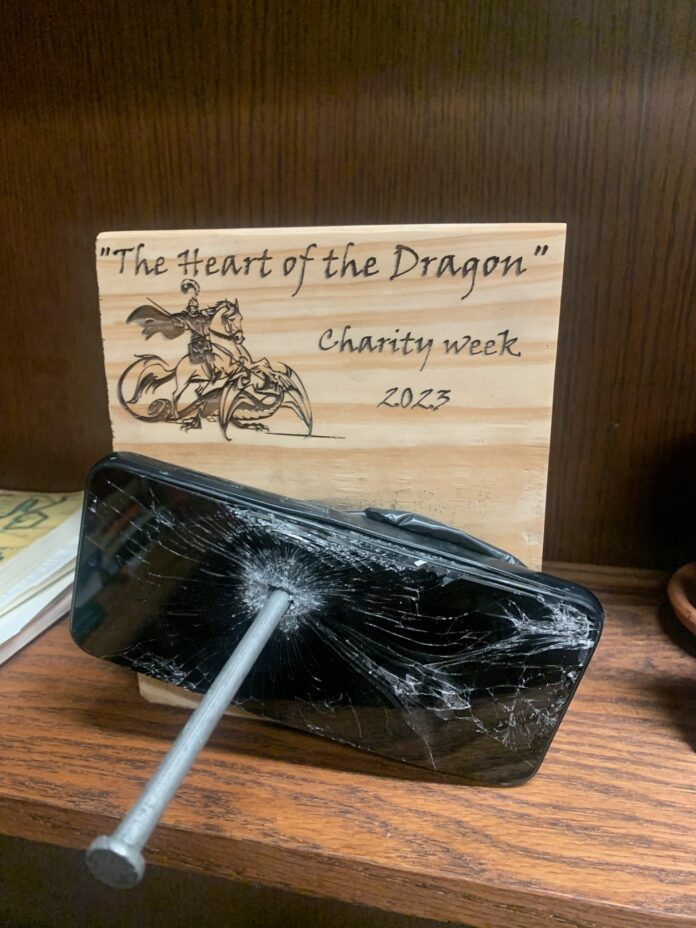
Disclaimer:
All articles published within this section of The Cor Chronicle are the opinions of the respective authors and do not necessarily reflect the opinions of The Cor Chronicle.
Let’s talk about the crazy people on campus who are ditching their smartphones and going light: the members of Humanality, a new movement at the University of Dallas. As one of those above-mentioned crazy people, I’m here to fill you in on everything you should know about Humanality.
As everyone can attest, we live in a world that has been dominated by digital tech, and not necessarily for the better. Digital tech abuse has pervaded my own life from the moment that I used my savings to buy my first iPad at eleven years old. From then on, I was sucked into the whirlwind of digital content–that never-ending influx of constant entertainment that we all know too well. The digital pervasion began with Youtube and mobile games, and it only worsened when I received a smartphone at thirteen.
This degeneration coincided with a new development that had happened in my life: joining social media. I joined social media because I fell for the lie that social media helps us be more connected. However, as many of us have come to discover, social media does not help us be more connected; rather, it disconnects us from one another and from the natural world around us.
Unfortunately, it took me a long time to arrive at this realization. Negative digital tech usage continually plagued me throughout high school, reaching its peak shortly after the outbreak of COVID– which, from conversations with others, I have come to learn was not a unique experience.
Since my start at UD, I’ve noticed a stark change in my digital tech usage, which has coincided with a genuine improvement in my quality of life. I attribute this change to two reasons: first, the anti-smartphone culture at UD, and second, the Humanality movement.
As most of us are probably aware, UD has a fairly prevalent anti-smartphone culture, thanks to the regular public lectures on digital tech and human connectivity, not to mention the many low-tech (and proud) faculty. During my freshman year, I was made aware of the neurological dangers of digital tech through informative lectures or conversations with friends.
However, despite all of this social encouragement to recognize and to do something about my smartphone’s pervasive influence over my life, I struggled to take concrete steps. I felt that even though the UD culture offered great support for such change, we lacked actual opportunities for people to make this change. This is where Humanality enters the picture.
Humanality pairs perfectly with the anti-smartphone culture at UD by offering students a concrete way to act on their social education in the dangers of digital tech. The mission of Humanality, or “Humans Engaging Reality,” is to foster human connection with one another and the natural world by encouraging responsible tech usage.
To be clear, we’re not anti-tech; instead, we simply want human beings to use technology like hu- man beings–and not like consumerist slaves, as Big Tech firms would have us do. The beauty of the light phone is that this device is not designed to keep you a slave to the screen, as smartphones are designed. Instead, the light phone is designed to competently perform necessary tasks and that’s it.
When compared to the smartphone, the light phone is actually quite inconvenient. However, Humanality encourages us to embrace the inconvenience for the sake of freedom.
We’re also not inherently anti-smartphone. Many Humanality members opt to keep their smartphones–a perfectly acceptable choice– and simply add restrictions to negate the most addictive and negative features of their devices.
Digital tech, when overused, attempts to take away your choice by giving you neurological cravings for your phone. Humanality wants to help you reclaim that choice.
Some Catholic colleges require students to give up their smartphones; however, something I find beautiful about UD is that no one is forced to give them up. Instead, we freely choose to just put a nail through the damn things (Charity Week).
If you’re struggling with digital tech addiction, then Humanality wants to remind you of a quote from Pope Benedict XVI: “The world offers you comfort. But you were not made for comfort. You were made for greatness.” Digital tech wants to offer you comfort in exchange for your subjugation. Reject it, free yourself and strive for greatness.